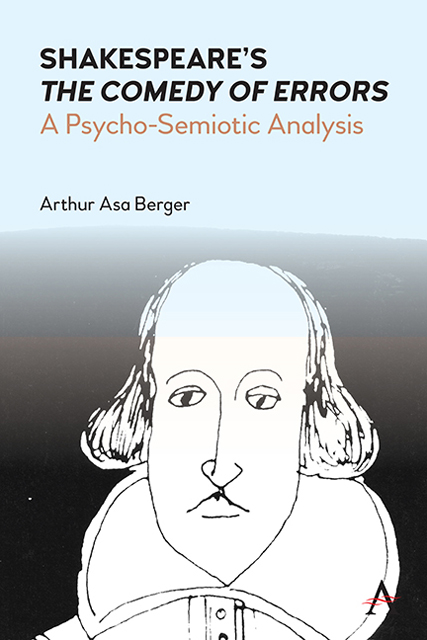Summary
How Did I Get Here?
In writing this book I had to ask myself, “how does a person who wrote his Ph.D. dissertation on Al Capp's comic strip, Li’l Abner, and spent fifty years writing about pop culture, end up writing a book on one of Shakespeare's comedies?” The answer is that Li’l Abner was a humorous comic strip, and my dissertation, published in 1970 as Li’l Abner: A Study in American Satire, showed my early interest in the scholarly study of humor.
My Books on Humor
I have been writing about humor since 1970 and have written about humor in many articles and about humorous comic strips in my book, The Comic-Stripped American (1974) and humorous television shows in my book, The TV-Guided American (1975). I’ve also written about Jewish humor in my books The Genius of the Jewish Joke (Jason Aronson, 1997) and Jewish Jesters: A Study in American Popular Comedy (2001, Hampton Press). I’ve written about humor, in general, in four books: An Anatomy of Humor, The Art of Comedy Writing, Blind Men and Elephants: Perspectives on Humor and Humor Psyche and Society.
An Anatomy of Humor was published in 1993 by Transaction Books and features what I describe as a “Glossary” of the 45 techniques of humor that I discovered in researching humor. The book also has chapters on jokes, Mickey Mouse, Huckleberry Finn, Twelfth Night and Jewish fools. I will say more about these 45 techniques later and offer a revised version of my glossary, since the techniques are central to my analysis of humorous texts. It has many jokes in the book that I analyze and I provide a list of humorous jokes and texts in a separate index in the book.
My next book, Blind Men and Elephants: Perspectives on Humor (Transaction, 1995), has chapters on different disciplinary approaches to the subject: communications, sociological, semiotic, psychological and so on. It also has many jokes in the book and a separate index of jokes. My third book with Transaction (1997), The Art of Comedy Writing, deals with theatrical comedies and has a long chapter on the 45 techniques of humor which it then applies to a play by Plautus, Miles Gloriosus, Shakespeare's Twelfth Night, Sheridan's The School of Scandal (1777) and Ionesco's remarkable “theater of the absurd” play, The Bald Soprano.
- Type
- Chapter
- Information
- Shakespeare’s The Comedy of ErrorsA Psycho-Semiotic Analysis, pp. 1 - 4Publisher: Anthem PressPrint publication year: 2022



